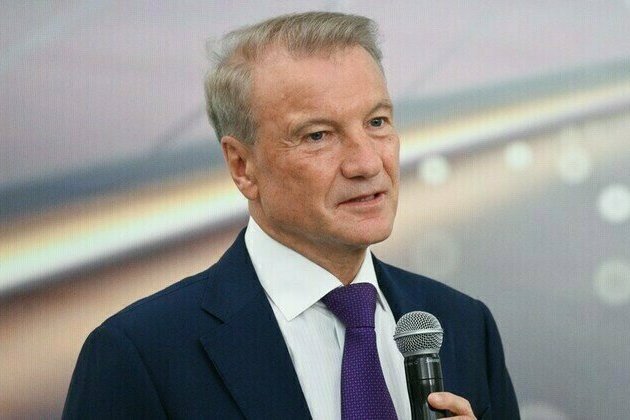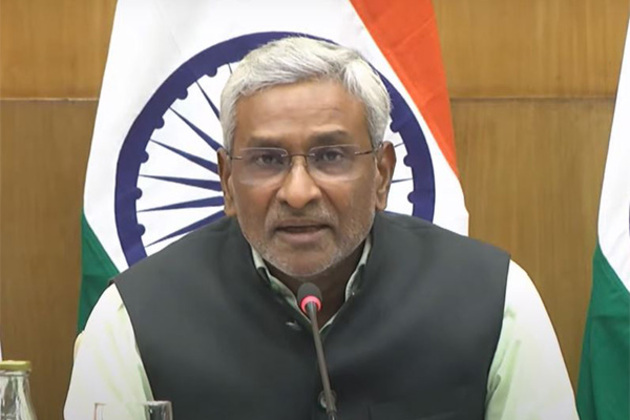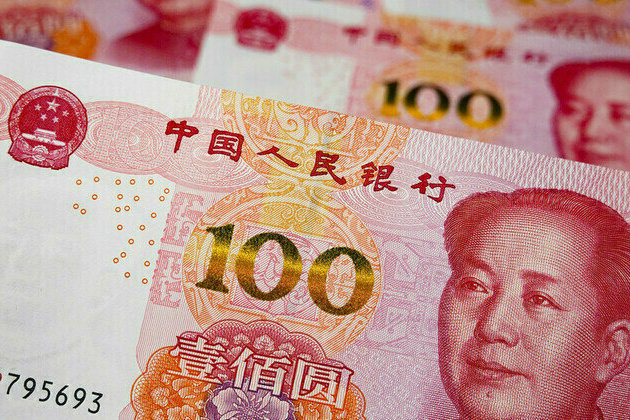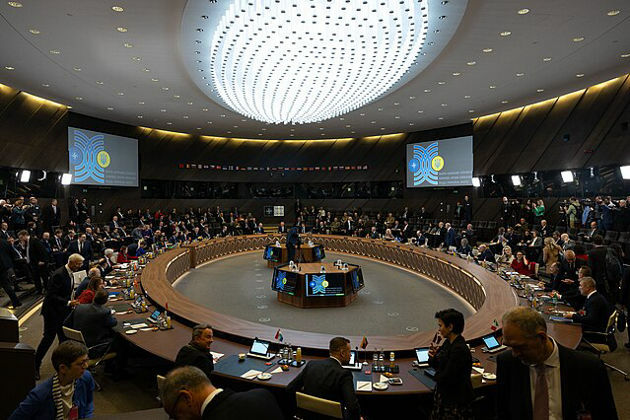The euro is plunging - and probably won't bounce back soon
The Conversation
24 Nov 2021, 00:10 GMT+10
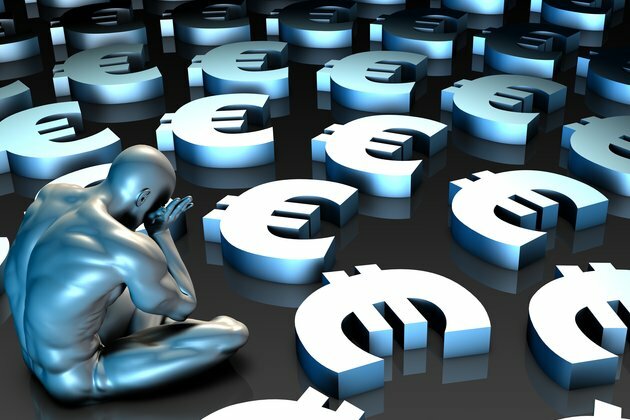
The euro has weakened against the US dollar since the beginning of 2021, from around US$1.23 to its current exchange rate of US$1.13. That's a fall of about 9%, which is significant, especially since these are the two major currencies of the world. The drop has also intensified in November, falling 3% since the turn of a month, which has seen violence in European capitals over COVID restrictions, migrant problems at the Belarus-Poland border and Russian troops amassing on the border of Ukraine.
The decline should be seen in a broader context, though. The euro is still stronger than a couple of years ago, when it was about US$1.10. It also went through some heavy weekly volatility from February to April 2020 in the early part of the COVID pandemic, bouncing between about US$1.07 and US$1.13 at a time when lots of investors were fleeing to the US dollar for safety and there was much uncertainty about what lockdowns would mean.
Euro vs US dollar chart
Explaining currency movements on a weekly or even monthly basis is well known to be extremely difficult, especially when it comes to major economies like the US and the countries in the eurozone. But certainly we need to look at what is happening in both regions and not just one or the other. Using this simple idea, there are several explanations for the recent euro depreciation.
Inflation differences
The first explanation relates to the Federal Reserve and the European Central Bank (ECB) stimulating their economies using quantitative easing (QE), which is essentially creating money to buy financial assets such as government bonds from banks and other major investors. Both central banks have been doing this extensively since the start of the pandemic.
However, with annual inflation in the US now reaching a serious level of 6.2%, compared with a less troublesome 4.1% in the eurozone, the feeling is that the Fed will end its asset purchases sooner. This is because increasing the money supply has the potential to stoke inflation. Indeed, the Fed has recently already started "tapering" or slowing down the rate of QE with a view to stopping it in the second half of 2022. On the other hand, the ECB has been discussing a replacement for its US$2.2 trillion (Pound 1.7 trillion) QE programme when it ends in March 2022.
Connected to this is an increasing expectation that the US may also have to begin a series of rises to interest rates from the middle of 2022 to curb inflation, while ECB president Christine Lagarde has just made it clear that the ECB is unlikely to start raising rates until at least 2023. These emerging differences in the monetary-policy stances of the US and eurozone have clearly favoured a strengthening of the dollar (since QE and lower interest rates tend to make a currency depreciate).
COVID and politics
A second pivotal factor has been the recent relative strength of the US economy in its recovery from the pandemic compared with the eurozone. In 2021, the US is forecast by the International Monetary Fund to grow 6% compared to 5% in the eurozone, while in 2022 they are respectively expected to grow 5.2% and 4.3%. Again, this points to dollar strength.
More COVID lockdowns in the US seem unlikely (even though cases are rising again), though not in the eurozone area, where the rate of infections has been picking up sharply in recent weeks in countries like Germany, France, the Netherlands, Austria and Belgium. Austria is now back in lockdown, and other eurozone countries could follow suit.
A final driver of the recent strength of the dollar is greater political stability. The Biden administration still has three years in office and has recently succeeded in passing its US$1.7 trillion Build Back Better stimulus package.
By contrast, countries in the eurozone face a period of greater political instability. Germany is seeing the 16 years of relative stability under Angela Merkel coming to an end. The question of whether Emmanuel Macron will succeed in the French elections in April 2022 against Marine Le Pen is also weighing on investors' minds, as are the continued trade frictions between the EU and the UK over Brexit.
It is happening at a time when Russia's build-up of forces close to Ukraine raises the prospect of military conflict on the edge of Europe - not to mention that Russia has already been limiting the region's gas supply and one of its main pipelines runs through Ukraine. In addition, there have been significant anti-vaccine protests in France, the Netherlands, Germany and Italy, and European governments are now under intense pressure to bring their spending under control.
So while short-term currency movements are very difficult to predict, there are many reasons to believe that the recent period of euro weakness will continue. This is making imports to the eurozone more expensive - not least energy - and while it has some benefits for a major exporter like Germany, it also undermines the credibility of the eurozone as a global economic force.
The gamechanger might be if the ECB acknowledged that there is an inflation problem that needs to be tackled, by ending its experiment with QE and beginning the process of raising interest rates. That, however, does not look likely any time soon.
Author: Keith Pilbeam - Professor of Economics, City, University of London 
 Share
Share
 Tweet
Tweet
 Share
Share
 Flip
Flip
 Email
Email
Watch latest videos
Subscribe and Follow
Get a daily dose of Greek Herald news through our daily email, its complimentary and keeps you fully up to date with world and business news as well.
News RELEASES
Publish news of your business, community or sports group, personnel appointments, major event and more by submitting a news release to Greek Herald.
More InformationInternational Business
SectionTrump-backed crypto project gets $100 million boost from UAE fund
LONDON, U.K.: A little-known investment fund based in the United Arab Emirates has emerged as the most prominent public backer of U.S....
Russias largest bank delivers pessimistic 2026 forecast
Dwindling demand for loans due to high interest rates is hurting Sbers profits, its CEO has warned Russia's largest bank, Sber, is...
PM Modi's 5-nation visit: Vaccine development among focus items in Ghana; discussions in Namibia to touch on UPI expansion
New Delhi [India], June 30 (ANI): Prime Minister Narendra Modi's upcoming five-nation tour, beginning on July 2, will see significant...
India to set up vaccine hub in Ghana, expand UPI in Namibia during PM Modi's multi-nation tour
New Delhi [India], June 30 (ANI): Prime Minister Narendra Modi's upcoming five-nation tour, beginning on July 2, will see significant...
Cash disappearing in China Le Monde
Mobile payments are dominant in the Asian country, while the traditional means of exchange has dwindled to near extinction, the outlet...
Pakistan government increases gas prices
Islamabad [Pakistan], June 30 (ANI): Pakistan's Oil and Gas Regulatory Authority (OGRA) announced a gas price hike for the majority...
Mediterranean
SectionApple allows outside payment links under EU pressure
SAN FRANCISCO, California: Under pressure from European regulators, Apple has revamped its App Store policies in the EU, introducing...
Alliance eyes major military buildup to counter Russia
THE HAGUE, Netherlands: NATO is pressing ahead with a sweeping new defense spending target, calling on all 32 member nations to commit...
UN chief alarmed by new displacement orders amid hostilities in Gaza
OCHA said most of Gaza remains under displacement orders, and people are being pushed into overcrowded areas where thousands of others...
India extends warm greetings to Congo on their Independence Day
New Delhi [India], July 1 (ANI): External Affairs Minister S Jaishankar on Monday extended warm wishes to the government and people...
Iran's next war with Israel will be final one - RT source (EXCLUSIVE)
The anonymous source has claimed that Tehran still possess numerous new generation missiles, against which Israel is defenseless ...
Irans next war with Israel will be final one RT source (EXCLUSIVE)
The anonymous source has claimed that Tehran still possess numerous new generation missiles, against which Israel is defenseless ...


